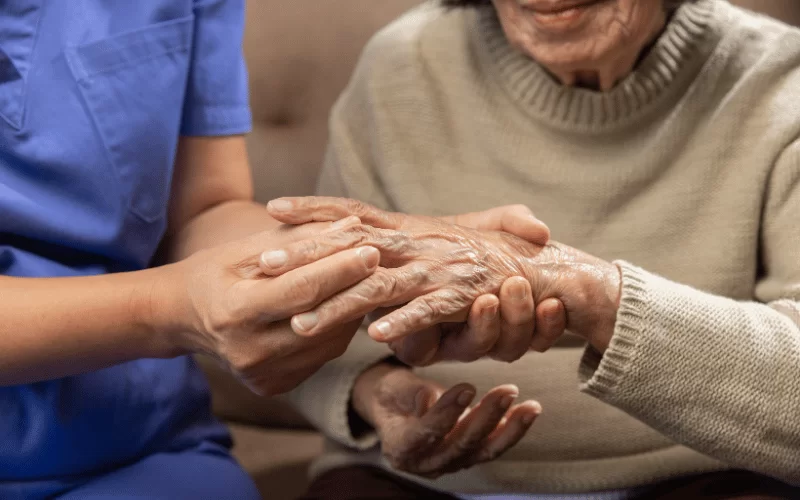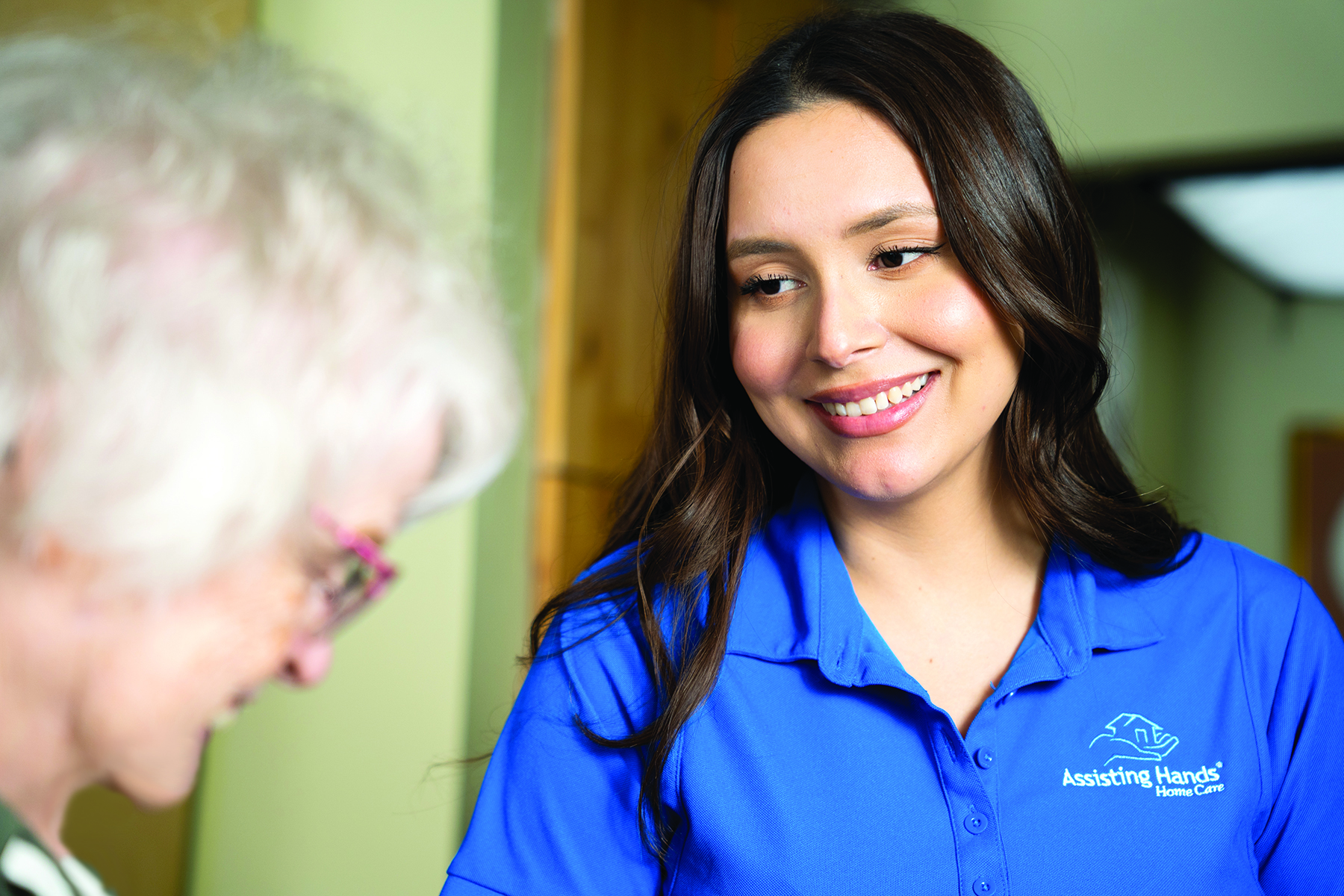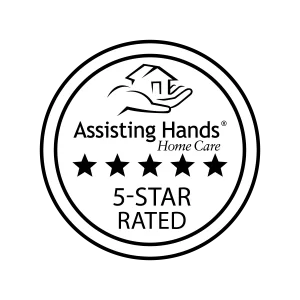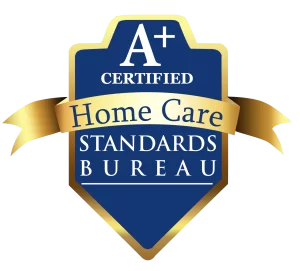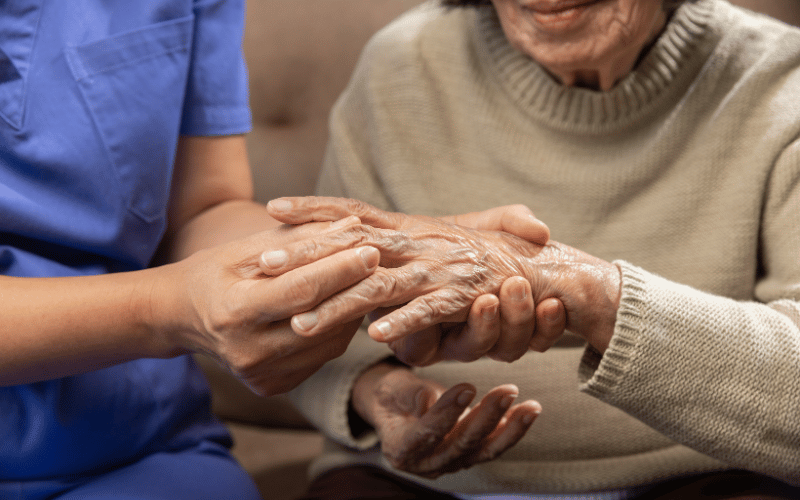
A diagnosis of a chronic illness is a devastating event for a senior and their loved ones. Since many chronic conditions are progressive, the older adult may eventually need help with the activities of daily living. Use these 10 tips to best care for the elderly living with chronic ailments.
How is a chronic condition defined?
The Centers for Disease Control and Prevention defines chronic illness as a disease that persists for a year or longer and requires ongoing medical attention. The illness may limit the senior’s ability to independently perform the activities of daily living.
Chronic diseases can affect people of any age but are prevalent among the elderly population due to the natural effects of aging. The National Council on Aging reports that 95 percent of seniors aged 60 and over live with one chronic condition while 80 percent have two or more.
What are examples of chronic diseases?
Examples of chronic illnesses include high blood pressure, which affects 60 percent of seniors aged 65 and older. High cholesterol, arthritis, and heart disease are also common. Seniors may live with diabetes, heart failure, or depression. Chronic disease includes Alzheimer’s disease and dementia.
How do caregivers support seniors with chronic illnesses?
Caring for seniors struggling with a chronic disease can take various forms. Social support is highly appreciated, especially when the aging person doesn’t ask for help directly. Besides fulfilling emotional needs, caregivers can help them obtain medical care and advocate for their rights.
Tip 1: Learn about the condition
Managing a chronic condition starts by learning about its symptoms, progression, and treatments. Discuss the illness with the senior’s physician or specialist to gain a better understanding of its course. Collaborate with the medical team to devise an optimal care plan.
Tip 2: Follow the care plan
The senior’s care plan is likely to include prescription medications, physical therapy, or recommendations for exercise and scheduling follow-up appointments with the doctor. Home care may also be incorporated into the care plan if the senior continues to reside at home.
Tip 3: Help the senior maintain a healthy weight
In the case of high blood pressure and high cholesterol, caregivers are urged to help the senior maintain a healthy weight. Schedule exercise, such as aerobic activities, stretching, and strength training, into the older adult’s day. Serve balanced meals, limiting the senior’s salt intake and alcohol consumption.

Tip 4: Limit stress
Lifestyle choices play a major role in an elderly person’s overall health. Encourage rest and relaxation through a meditation practice or deep breathing exercises. It’s also imperative to ensure the senior’s stress levels are at a minimum and they get 7 to 8 hours of sleep.
Tip 5: Offer specific help
Ask the senior what they need, taking care to ask specific questions. An individual with a chronic illness is more likely to accept help when the caregiver asks pointed questions, such as, “Do you need someone to pick up your medications?” or “Do you need someone to go grocery shopping?”
Tip 6: Listen to their needs
After asking what the senior needs, listen to their responses. Being a compassionate listener is one of the most helpful ways to care for an aging loved one. Seniors are more likely to open up to trusted individuals, such as family members or caregivers, who can support them.
Tip 7: Encourage autonomy
Older people prize their independence even after being diagnosed with a chronic disease. Help the senior maintain their autonomy by supporting them in tasks yet allowing them to perform as much of them as is safely possible. This boosts their confidence and self-esteem.
Tip 8: Foster positivity
A positive mindset is crucial when helping a senior manage a chronic illness. Allow the aging loved one to freely express their emotions and concerns. Focus on their accomplishments, big and small, as well as their strengths. Find hope as they progress through the course of their disease.
Tip 9: Avoid toxic phrases
While remaining positive is essential, avoid engaging in toxic positivity. Framing a serious condition through an optimistic lens invalidates the senior’s feelings and personal struggle. An example of a toxic phrase to avoid is, “It could be worse!” Rather, say, “Your feelings are valid. How can I help?”
Tip 10: Be their loved one
Adhering to a strictly caregiving role fails to allow the caregiver to act as a loved one, too. Instead of fixating on caregiving alone, encourage fun, such as hobbies or leisure activities the senior enjoys. Activities like these are stimulating and promote the senior’s emotional well-being.
Assisting Hands Home Care
Family members who follow the abovementioned tips provide the best care to an elderly loved one managing a chronic condition. A bonus tip is to integrate Assisting Hands Home Care into the senior’s care plan. Our home care agency provides dependable elder care in the comfort of home.
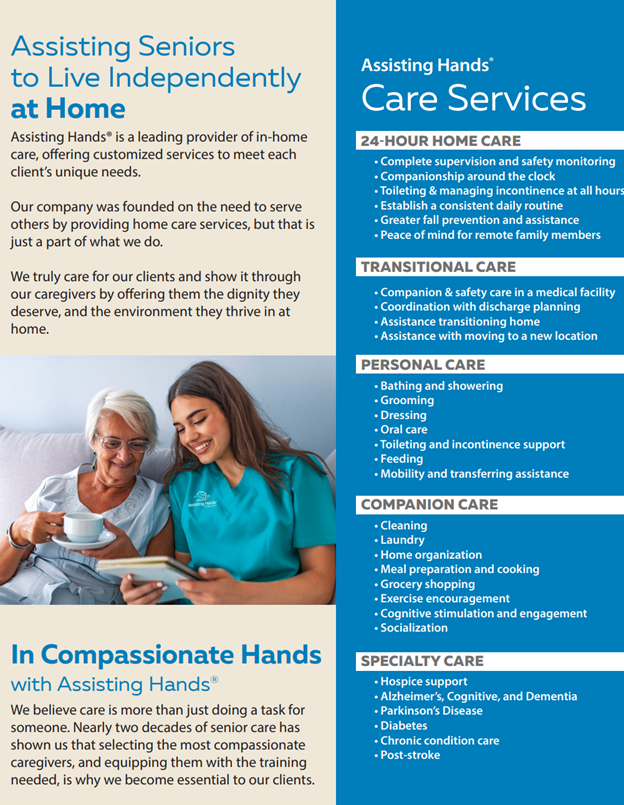
Dedicated caregivers from our highly rated senior care agency undertake numerous responsibilities to promote the physical, emotional, and social well-being of the individuals we serve. Our professionals support aging care recipients with personal hygiene tasks, such as bathing, dressing, and grooming.
If your aging loved one needs to visit the doctor to manage a chronic ailment, we provide safe transportation and escort to the medical facility. We also shop for fresh groceries, prepare balanced meals, and schedule exercise into their day so that the elderly maintain a healthy weight.
Care options are flexible and varied. Our caregivers are available to provide respite care to alleviate family caregivers, 24-hour care for serious conditions, after-surgery care to accelerate healing, and hospice care to increase comfort in the final phase of life. We also offer compassionate dementia care.
Caring for a senior with a chronic illness is more manageable with the help of the experienced caregiving professionals at Assisting Hands Home Care. We are privileged to serve the elderly living in Schaumburg, Illinois.
Call our care coordinators today to arrange for quality senior home care, contact us today at (224) 258-0736.

Daniela has master’s degree in electronic engineering with a pedagogical specialty and master’s degree in marketing management.
After completing her schooling, Daniela worked at a hospital for 6 years as the Director of Business Marketing Development and Public Relations.
Starting Assisting Hands Home Care
Daniela spent more than 14 years as the Assistant Vice President of a national bank before becoming a co-owner of Assisting Hands Home Care of Schaumburg.
Her background in public relations and marketing along with her personal experience caring for her mother motivates Daniela to be passionate about helping families in the Schaumburg, IL area find exceptional caregiving services for their elderly loved ones.
Besides providing home care, Daniela enjoys giving back to the community in her free time, supporting various events at St. Peter Parish in Geneva, IL such as fundraising, school projects, charity events, and more. She also enjoys volunteering for the Humanitarian Service Project in Carol Stream, IL. This organization provides seniors with meals as well as food and supplies for children living in poverty.

